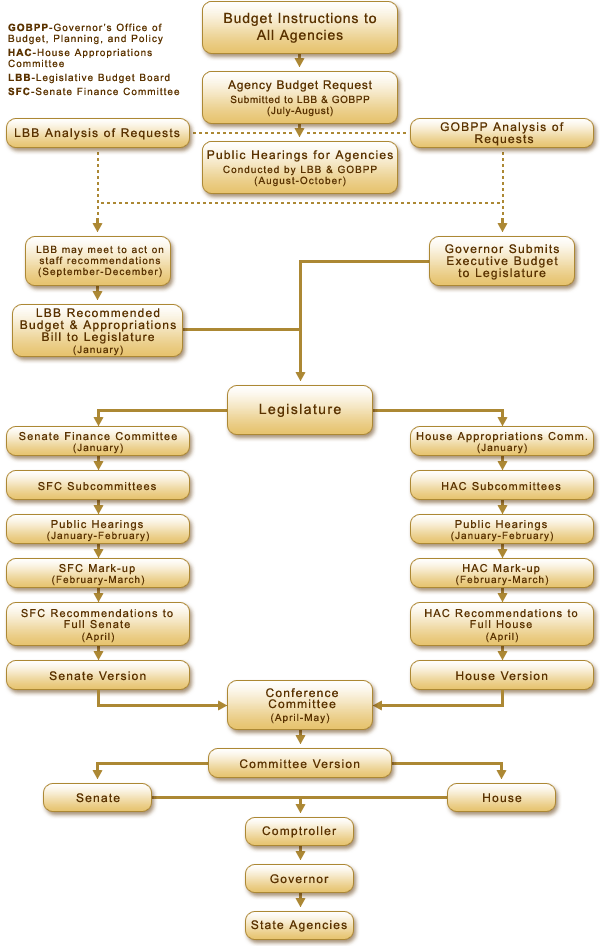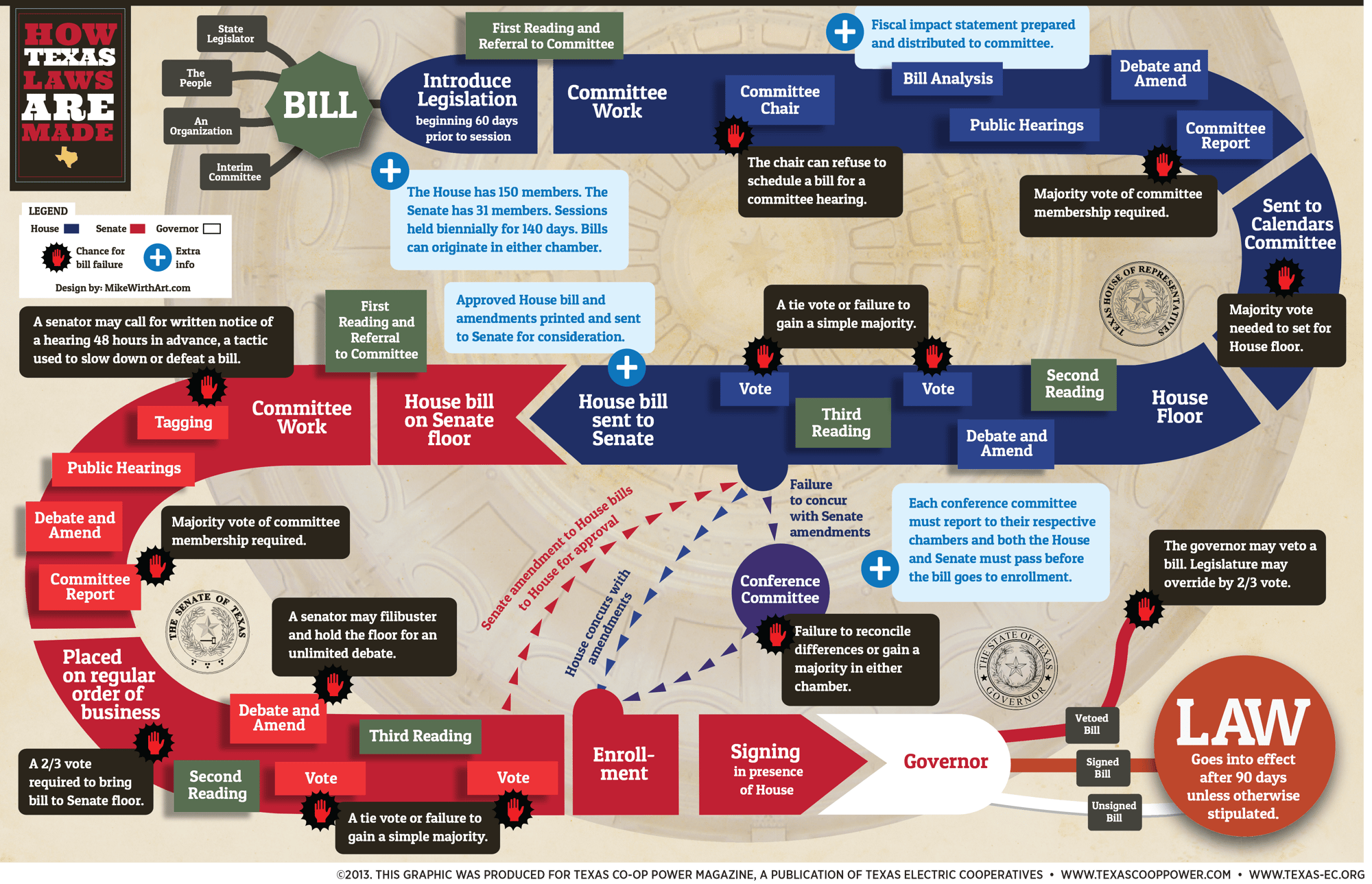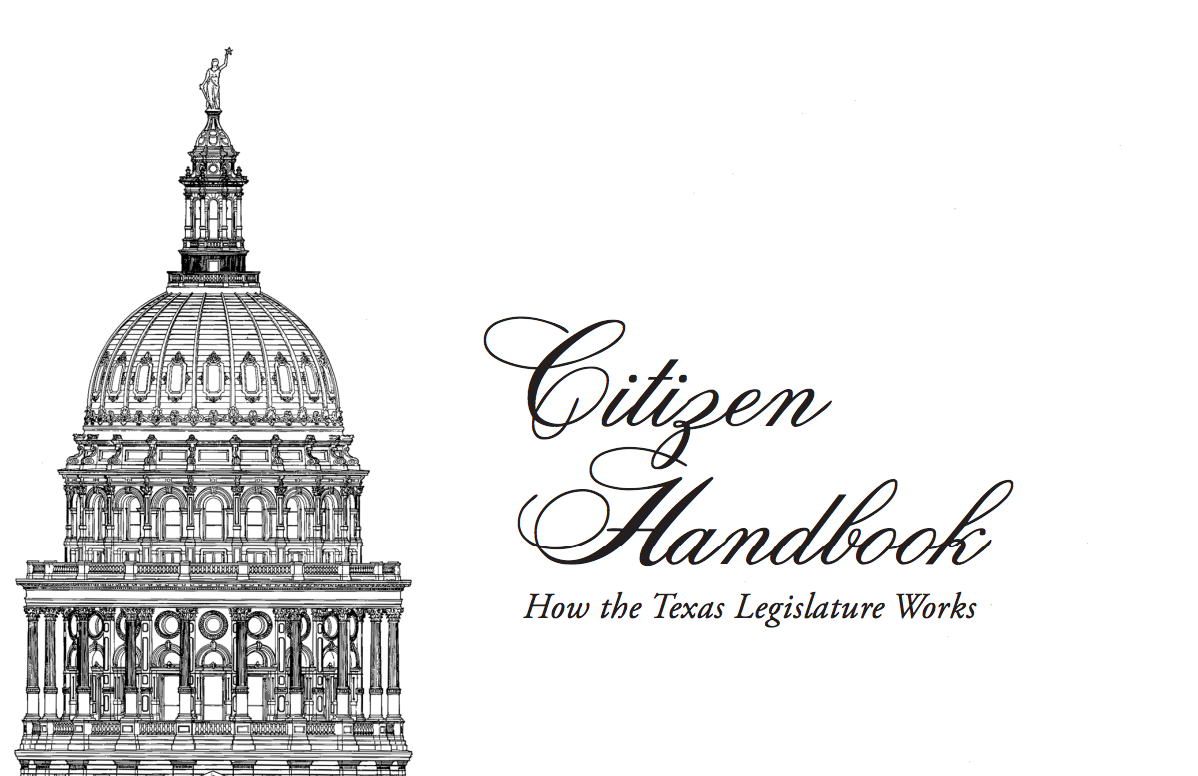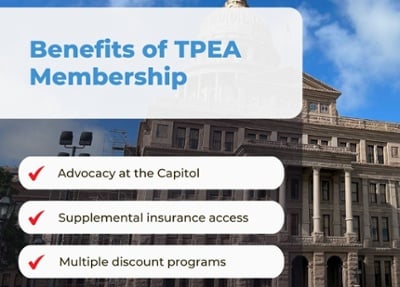CONCLUSION TO THE 88TH TEXAS LEGISLATIVE SESSION
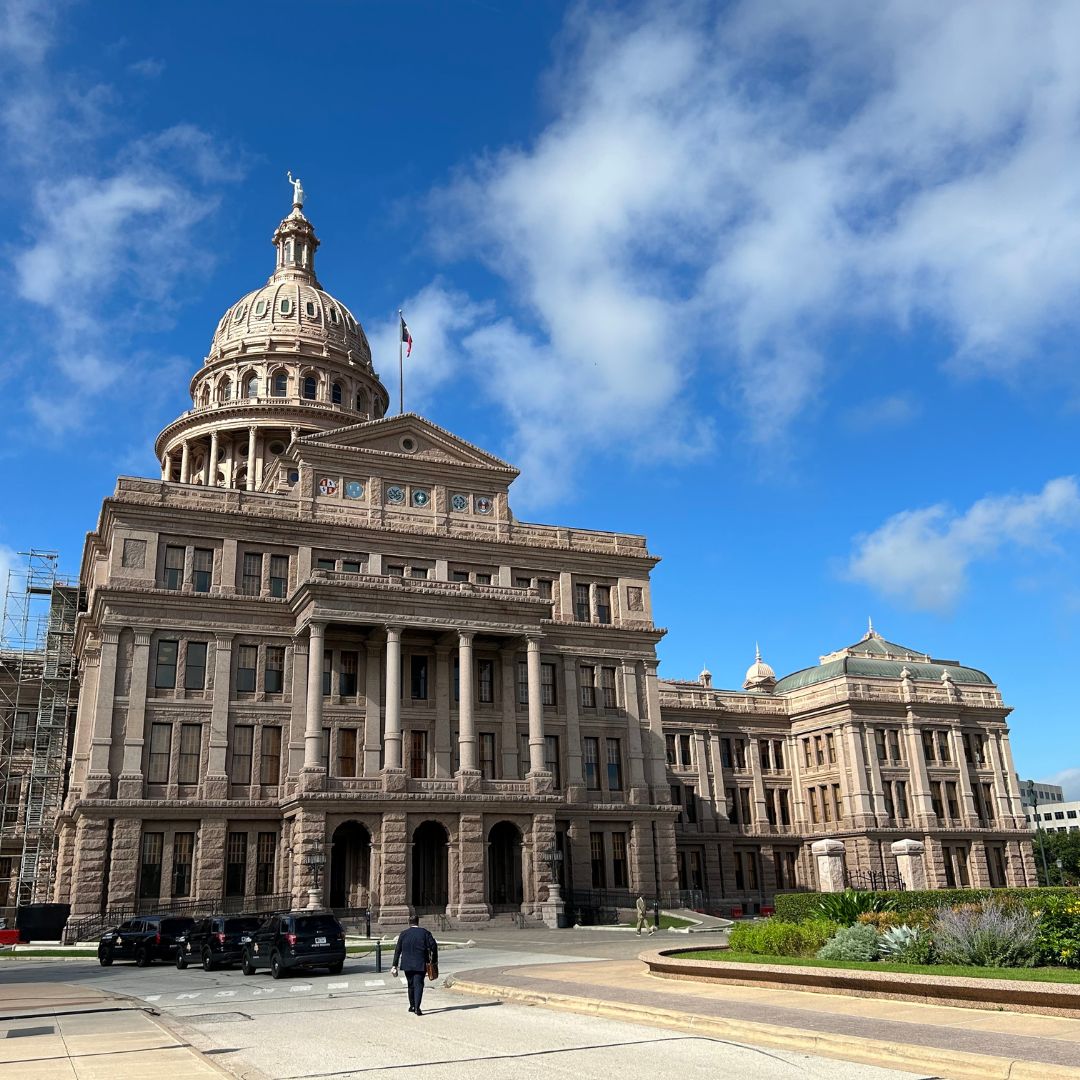
Lawmakers approved many measures that TPEA has advocated for since summer 2022 and, in some cases, for years before that. These include:
- Active employees will receive the most significant pay raises in memory.
- Active and retired employees will maintain stable health care costs, with no increases in premiums or out-of-pocket costs for the main health plan under ERS. (Medicare Advantage rates will be set in August.)
- Several billion dollars in new money will be invested in the ERS retirement fund. This money will improve the fund’s financial stability and allow for a small Cost of Living increase (COLA) for retirees who have been retired for 20 years or more. While this isn’t a victory for all retirees, it is progress.
These positive results are tempered by the Legislature’s repeated failure to support the 13th yearly check for retirees who have not seen a benefit enhancement in over two decades.
As we enter the time between legislative sessions, the TPEA Board of Directors and staff are committed to growing and strengthening our membership, so we can build on these “wins” and work to overcome the “defeats” in the years to come. As you can see, the countdown has already begun for the next session.
TPEA Action Before and During the 88th Legislature
Election Primaries
Our efforts began even before the March 2022 legislative primaries. In December 2021, TPEA sent a survey to all candidates running for state office and asked their opinion on 3 issues important to state employees and retirees.
The questions include:
- What do you see as the issues most important to state employees and retirees? How do you plan to address them?
- Do you support an across-the-board pay raise for state employees? Why or why not?
- Do you support an annuity increase for ERS retirees? Why or why not?
We sent a number of surveys and received many responses. We let our members know about the candidates' positions and encouraged them to visit with the candidates and vote.
On January 13th, 2022, TPEA Retiree Chapter 149 hosted “Coffee with the Candidates” for state employees and retirees to meet candidates in their areas. We interviewed candidates around the state and posted the interviews online. Click here to view interviews.
Testimony during the last interim
TPEA Retiree Chapter 149 President Dan Maxwell and ERS retiree Ray Hymel testified at the interim Senate Finance hearing on May 4, 2022, about the impact of inflation on state employees and retirees. See both of their testimony here, with Dan’s beginning at approximately 3:00.
Also in May, Ray Hymel and TPEA Executive Director Ann Bishop testified at the Senate Business and Commerce Committee hearing on the benefits of remote working, stressing the need for state agencies to have the flexibility to determine their remote work policies. See our testimony here, beginning at approximately 5:40:
Advocating for state agencies
During March and April of 2022, Ann met with the heads of more than 30 state agencies about how TPEA could help address their workforce issues and told them TPEA was seeking an across-the-board pay raise. We requested their support by including or mentioning an across-the-board pay raise in each agency's legislative appropriations requests (LAR). TPEA said we would also support their agency's targeted pay raises.
Beginning in June 2022, while the state agencies drafted their LARs, we analyzed over 75 state agency workforce plans to see the issues important to all state employees. Using the information in state agency workforce plans and the agency's LAR, TPEA testified at more than 40 joint budget hearings in August and September 2022. We testified for an across-the-board pay increase even if the agency had not asked for one.
We continued advocating for a pay raise for state employees and retirees throughout the fall and winter of 2022 and spring of 2023 as lawmakers wrote multiple drafts of the state budget and considered hundreds of bills that could directly affect state employees.
TPEA support for a 13th ERS check
TPEA Board members and staff provided testimony, advocated with legislators, and utilized the news media to support a 13th check or other retirement benefit enhancement.
TPEA Retiree Chapter 149 President Dan Maxwell and ERS retiree Ray Hymel testified at the interim Senate Finance hearing on May 4, 2022, about the impact of inflation on state employees and retirees. See both of their testimony here, with Dan’s beginning at approximately 3:00.
In August 2022, TPEA Executive Director Ann Bishop testified at the House Pensions and Investments Committee hearing about the need for a cost-of-living increase and a 13th check for retirees.
On September 8, 2022, ERS testified before the House Appropriations Committee about the status of the ERS Fund and the implementation of SB 321. Although the Committee only took invited agency testimony, Ray Hymel and Ann Bishop were there — making TPEA the only employee or retiree group that attended — to speak with legislators about a retiree 13th check and COLA.
Once the 88th Legislative session began, TPEA Board members and staff regularly testified to support a 13th check and other benefits for current and retired state employees. These included:
- During winter storm Mara on January 30, Ray Hamel and Ann Bishop testified before the Senate Finance Committee, stressing the need for a 13th check and COLA for ERS retirees.
- On March 16, the House Appropriations Committee heard invited testimony from ERS. TPEA was also there, talking to members about a pay increase for retirees.
- TPEA also testified and talked to legislators in March and April during multiple Senate Finance and House Appropriations committee hearings on HB 1, the General Appropriations Act, and SB 30- the Supplemental Appropriations bill for a pay increase for retirees.
- TPEA retired members continued to support a 13th check or COLA by visiting legislators during two TPEA retiree days, distributing educational information, testifying at the Capitol, writing numerous letters to the editors and guest columns, conducting interviews with newspapers, calling, and writing legislators, the Lt. Gov and Speaker. See Retired State Employees link.
Key Legislation For State Workers
Signed by Governor
- HB 1393 (Rep. Frank/Sen. Perry): Establishes a new retirement annuity option for ERS that increases at a specified rate over time. The annuity payments must be actuarially neutral relative to a standard service retirement annuity.
- HB 3813 (Rep. DeAyala/Se. Perry): Allows qualified TRS retirees who worked in the Windham School District to receive health benefits through ERS.
- SB 222 (Sen. Nichols/Rep. Metcalf): Creates a new paid parental leave benefit for non-higher education state employees for the birth or adoption of a child.
- SB 729 (Sen. Huffman/Rep. Bonnen): Clarifies and adds features to the ERS cash balance retirement benefit created by SB 321 in 2021, the new retirement plan for state employees hired on or after September 1, 2023. The most significant changes involve service credit and contributions for military service and the ability of members to reestablish service credit for previously withdrawn contributions.
- SB 2214 (Sen. Blanco/ Rep. Noble): Adds intake workers at the Department of Family and Protective Services to the list of state workers who are eligible for compensatory time when they are required to work on a national or state holiday weekend.
- HB 109 (Rep. Julie Johnson/Sen. Zaffirini): Expands choices for hearing aids under health plans, including ERS, by prohibiting a plan from denying an option for a hearing aid solely because its cost exceeds the plan’s benefit level.
- HB 916 (Rep. Ordaz/Senator Paxton): Requires health benefit plans, including ERS, to provide coverage for up to a three-month supply of contraceptives when first filled and up to twelve months when the prescription is filled subsequently.
- HB 1914 (Rep. Kacal/Sen. Hinojosa): Expands the ability of all TDCJ employees to maintain compensatory time off for up to two years after it is accrued. This provision is already in effect for correctional officers, so HB 1914 expands eligibility to all TDCJ employees.
Did not pass
- HB 4579 (Rep. Walle/Sen. Hughes): Expands the range of Schedule A salary classification groups eligible to pay employees twice monthly to include groups A 12 through A 17. Currently, only salary groups below A 12 are eligible.

